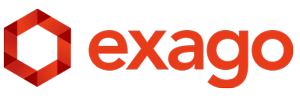Photo @pexels.com
As organisms, companies inevitably have to evolve. But many seem to be resisting change, overlooking evidence that existing models won’t be enough to cope with the uncertainties of the future. Evidence that nothing will ever be the same again in the global business world.
Change is here to stay and to continuously challenge us:
a) There are no permanent competitive advantages
The competitive advantages are eroding faster than ever. Not only enterprises, but also whole industries are disappearing or run such risk because they are not ready for the future. In many cases, the biggest competitors they will meet tomorrow come from outside the industry.
Video shops, for instance, have witnessed a decrease in demand in the digital age, as television and cinema services soared, and above all, in the face of the internet boom and consequent supply. Video cassettes have vanished from shelves. Video shops have disappeared from streets.
Nowadays, cameras are also giving in to mobile phones. Canon and Nikon continuously struggle to keep profitable and secure a place as market leaders.
b) Doing first, fast, continuously
Strategy life cycles are shortening. Businesses emerge, grow and die faster than ever. What is true in the morning may be shaken up by something amazingly different, quicker or more efficient just a few short hours later.
Markets fluctuate, tendencies, preferences and consumer behaviour change. The business world thrives on doing first and on good timing. Today. And again tomorrow.
c) Change has become rule
Value networks and ecosystems such as Facebook, Apple and others are causing a decrease in control of single companies. They also act as generators and disseminators of knowledge.
Linus Torvalds and the Linux system, open to evolution by means of collaboration of a community of programmers, is an example of how the rules completely change, creating new ecosystems, decentralising and relocating power of production and control.
d) Power to the consumer!
As a consequence of the impact of the internet, power is increasingly shifting from producers to consumers. The Web’s richness and diversity springs from the fact that it is decentralised, non-hierarchical and inclusive of every individual. By allowing people with common interests to unite with each other, the internet gives these new groups an extraordinary power of negotiating, in a truly digital economy.
The consumer of today is, as never before, involved, both directly and indirectly, in brands and products in a twofold manner – praise and criticism. He may intervene, have a say in it and be listened to. This means not only that he takes conscious, informed decisions by himself, but also that he may contribute to the very process of decision making upstream.
A recent study by the consulting firm Gartner, ‘Digital Business. Reshaping industries, Redefining IT’, stresses that consumers, thanks to the power of mobile connectivity, are themselves profiting from crowdsourcing in new ways. They are beginning to understand the power they have (and will have) to influence companies’ decisions.
e) An interconnected network…
The world is increasingly social, the distances between companies and individuals are becoming smaller. The celerity of processes shows in proximity relations, in network dynamics, linking with people and contexts previously inaccessible, and debureaucratising processes.
Through LinkedIn, Twitter, Facebook or even via e-mail, it’s possible to immediately direct a message to a CEO, a manager in any area, a creative or a designer (although considering the professionals who often run these platforms).
f) …anywhere, anytime
Access to information is ubiquitous and universal, because technologies of information and communication are themselves present anywhere, anytime. This immediacy leaves increasingly less room for intermediation and arbitrage.
g) Competition and global choice
Deregulation, communication costs reduction, even digitalisation and globalisation have been boosting the creation of new industries by newly-arrived, low-cost competitors.
Monopolies fade. Information spreads quickly, shaking the old foundations of intellectual property. It reaches continents and countries with lower raw material costs, productive labour or ability to replicate processes in a more affordable way. The market of choice for the consumer thus continues to grow exponentially, in global directions.
On the other hand, as a recent OECD report recalls, economic power is shifting to emerging countries. China’s number of graduates is now five times higher than ten years ago. Its number of graduate schools has doubled during the last decade. Keeping this rate, in ten years, China and India shall account for 40% of all young graduates in the G20 and the OECD countries (data from the ‘Education Indicators in Focus – 2012/05’ report). To gather the best-prepared professionals will make a difference.
READ MORE:
And at work, what is changing?
FROM THE START:
The future of work and the transformation from within
Pedro do Carmo Costa, Exago’s director and co-founder
Francisco de Rhodes Sérgio, VP Inbound and Sales for LATAM
